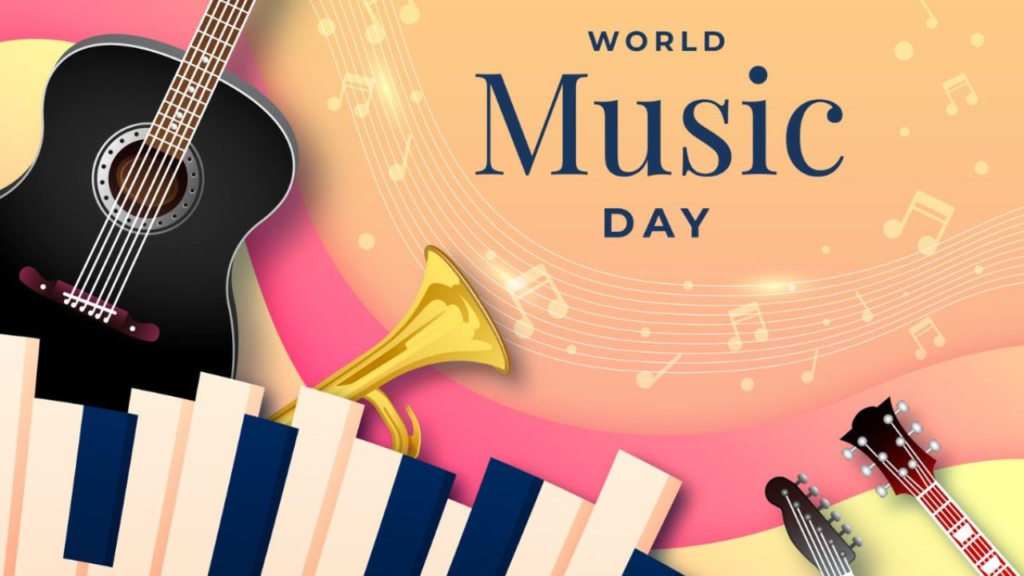
Table of Contents
- Introduction: Tuning into the Holiday Spirit
- ‘Happy Holidays’ in the World of Music Day
- The Grammar Behind the Greeting
- Style vs. Rules: Capitalization in Context
- When to Capitalize ‘Happy Holidays’
- Creative Messaging for Music Day
- Social Media & Typography Trends
- Common Mistakes to Avoid
- Final Notes for Writers, Artists & Brands
- Conclusion: Harmonizing Tone, Style, and Intent
1. Introduction: Tuning into the Holiday Spirit
As World Music Day fills the air with rhythm and joy, many well-meaning messages echo across platforms—“happy holidays,” “Happy Holidays,” “HAPPY HOLIDAYS.” But is there a right way to write it? In a world where language meets creativity, the way we phrase greetings matters, especially when tone, style, and intent must sing in harmony.
2. ‘Happy Holidays’ in the World of Music Day
Though not a traditional “holiday,” World Music Day embodies celebration, connection, and global unity—much like the festive season. As a result, greetings like “Happy Holidays” often find their way into music-themed messages. Whether used in concert invites, posters, captions, or lyrics, this phrase bridges festive cheer with musical passion.
3. The Grammar Behind the Greeting
According to standard English grammar, “Happy Holidays” is typically capitalized when used as a standalone phrase or greeting. Here’s why:
- “Happy” is an adjective and “Holidays” is a plural noun.
- In greetings, each significant word is usually capitalized (like “Merry Christmas” or “Happy New Year”).
So, yes, “Happy Holidays” gets capital letters when used as a greeting or title.
4. Style vs. Rules: Capitalization in Context
Grammar isn’t the only force at play—style guides often influence capitalization choices. For example:
- AP Style: Capitalizes formal greetings like “Happy Holidays.”
- Chicago Manual of Style: Recommends capitalization in titles and greetings.
- Casual writing or artistic expression (like song lyrics or social media): often uses lowercase for aesthetic or tonal reasons.
So while the rule favors “Happy Holidays,” the vibe might choose “happy holidays.”
5. When to Capitalize ‘Happy Holidays’
| Use Case | Capitalization |
| Greeting in a message/poster | Happy Holidays |
| Title of a blog, email, or event | Happy Holidays |
| In the middle of a sentence | happy holidays (if not part of title) |
| Creative lyric in a song | Flexible (artist’s choice) |
| Hashtags and slogans | #HappyHolidays or #happyholidays |
As a rule of thumb: capitalize when formality or clarity is key; lowercase when artistic minimalism rules.
6. Creative Messaging for Music Day
Here are a few themed message examples to illustrate tone and capitalization:
- Formal: Wishing you a joyful World Music Day and Happy Holidays in harmony.
- Playful: tune in, turn up, and celebrate happy holidays with global beats.
- Branded: Happy Holidays from all of us at Harmony Radio – where music meets the world.
Your audience, medium, and message should guide the stylistic choice.
7. Social Media & Typography Trends
Minimalist typography is trending, especially on Instagram, Pinterest, and TikTok. Lowercase greetings like “happy holidays” are often seen in:
- Design-forward posts
- Music lyrics overlays
- Soft brand messages
Uppercase versions—HAPPY HOLIDAYS—add energy and shoutout vibes, perfect for promotions or festival graphics.
8. Common Mistakes to Avoid
- Mixing cases inconsistently in the same phrase (e.g., “Happy holidays” or “happy Holidays”)
- All caps everywhere unless it fits the design or intention
- Forgetting the context—a song lyric can break rules, but an email header shouldn’t
The message shouldn’t be lost in the formatting.
9. Final Notes for Writers, Artists & Brands
If you’re crafting a World Music Day message that includes “Happy Holidays,” ask yourself:
- What’s the tone—formal, casual, or artistic?
- Where is the message going—email, poster, lyric, caption?
- Is consistency more important than creativity?
Let the format support the feeling, not fight it.
10. Conclusion: Harmonizing Tone, Style, and Intent
In the symphony of global celebration that is World Music Day, the way we greet matters just as much as the sound we share. “Happy Holidays” can be your chorus or your refrain—but its presentation should reflect your purpose. Whether you write it in bold caps, soft lowercase, or traditional title case, make sure it resonates.
The real harmony lies in authenticity. Let your words sing just as beautifully as your melodies.

